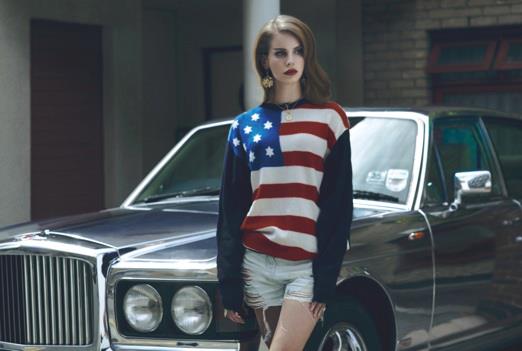
![]()
Why I Hate Lana Del Rey
By
William Felix Robinson of Big False AssemblyElizabeth Woolridge Grant first broke into the British mainstream as 'Lana Del Rey' after her supposedly spellbinding performance of 'Video Games' on Later... with Jools Holland last year. Pop lovers loved her smooth voice and pleasingly resolved image, hipsters loved how she was “a bit different” and the music snobs loved her orchestral production and 60s nostalgia.
However, to this disgruntled writer she embodies what is wrong with popular culture today.
She is a product, invented by her record label in the same way as Ke$ha or The Wanted. It was her label's decision to make her a solo act. It was her label's decision to change her name from the rathernondescript Lizzie Grant to the yet blander Lana Del Rey. Even her faux-edgy marketing soundbite, “a gangster Nancy Sinatra”, smacks of focus groups and bald men in suits (not that there's anything wrong with being bald, or with sartorial elegance).
A Gangster Nancy Sinatra.
Lets unpick that. To begin with, Nancy Sinatra is about as gangster as it gets. Her father is Frank Sinatra (about whom the FBI had 2,403 pages of documents, and who they kept under surveillance for 5 years).She sings about how her “baby shot [her] down”. How “gangster” does Lana want to pretend to be?
Of course it's an evocative description. It does give a fairly accurate mental picture of what the label – or maybe even Elizabeth herself - is trying to get across. But it just doesn't make sense.
Then of course we get to her “persona”: Lana Del Rey. Alter-egos often work; some of the greatest artists have used them, from David Jones (who became David Bowie, and then Ziggy Stardust, and then David Bowie again) to Vincent Furnier (Alice Cooper). Even Rhys “Spider” Webb of The Horrors has one.
However, what these three artists have in common – and what Lizzie Grant lacks - is that under their various alternative titles they become new characters. Breaking free of the shackles of their former identities allows them to innovate, experiment and really create something exciting. Unlike them, Elizabeth Grant doesn't become 'Lana Del Rey' on stage; she's always plain old Lizzie and she's always going to be. She doesn't even try to convince us that she's put any thought into who this 'Lana' is.
“But that's what's cool about her, its all so effortless”
She isn't cool. She really isn't. At best, she's the kind of cool they sell homogenised and vacuum-packed in Urban Outiftters, so people who want to look like what they think cool people look like don't need to really try. She fits the analogue camera-shooting, vinyl LP-playing, vintage clothing stall mould, a mould whose endless nostalgia and pastel colours are getting slightly tiring. She's not “different”, she's just a pop act. A cleverly marketed pop act.
The disparity between what she is and what her and her fans insist she is is painful.
Which is precisely why she's so infuriating. Her music – especially her miserable, shallow lyrics – is so nondescript it doesn't stand up to the attention gone into her marketing. Her 60s Americana
trailer-park glamour is a look pulled straight out of Instagram, and to be honest her album artwork is just boring.Yet she's sold to us as a genuine artist, when in reality she's just really boring.
But after all, boring's cool.
-----------------------------------------------------
William is guitarist and vocalist in Manchester band Big False Assembly - check them out here http://www.facebook.com/bigfalseassembly
© 2000-2012
Designer Magazine unless otherwise stated.
All Interviews by Alex McCann unless otherwise stated
NB: Please seek permission before using any articles within this siteContact us: designermagazine@hotmail.com
